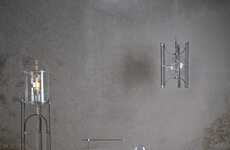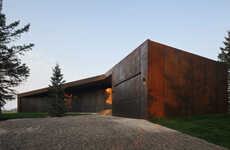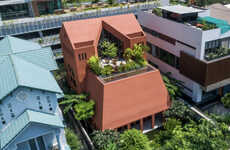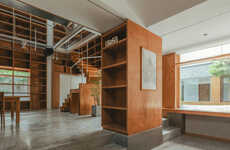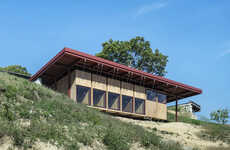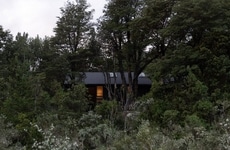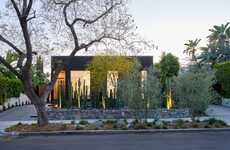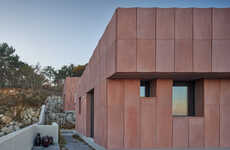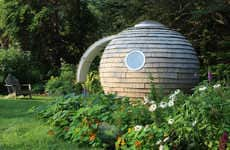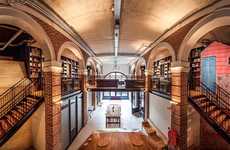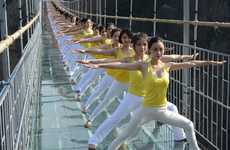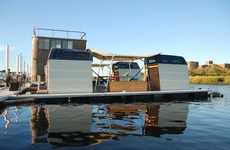
The Ssangdalri House is Arranged According to Chinese Philosophy
Laura McQuarrie — February 9, 2015 — Art & Design
References: archdaily & ifitshipitshere
Rather than setting up a feng sui home practice as an afterthought of design, Hyunjoon Yoo Architects made this Chinese philosophical system integral to the architecture of this house. Historically, buildings used feng shui for orientation, ensuring that homes were harmonious in all aspects. However, feng shui now seems to be a practice for most that only deals with working with what you've already got on the interior.
The house was designed for an older couple who made the transition from living in the city to a relaxed rural area. Even the site of the Ssangdalri House in South Korea was chosen in accordance to how the vistas aligned with the principles of feng shui. In accordance with feng shui, the bedroom faces a valley to the west, while a dining room faces a rock on the north side. Another highlight of the house's design is the traditional yellow dirt heated stone system, which is another throwback to the past.
The house was designed for an older couple who made the transition from living in the city to a relaxed rural area. Even the site of the Ssangdalri House in South Korea was chosen in accordance to how the vistas aligned with the principles of feng shui. In accordance with feng shui, the bedroom faces a valley to the west, while a dining room faces a rock on the north side. Another highlight of the house's design is the traditional yellow dirt heated stone system, which is another throwback to the past.
Trend Themes
1. Integration of Feng Shui in Architecture - Designing buildings with feng shui principles as an integral part of the architecture to promote harmony and balance.
2. Revival of Feng Shui Practices - Rediscovering the historical use of feng shui for orientation and harmonious living in modern architecture and design.
3. Feng Shui-inspired Interior Design - Adopting feng shui principles in interior design to create a harmonious and balanced living environment.
Industry Implications
1. Architecture and Design - Opportunity for architects and designers to incorporate feng shui principles into their projects, enhancing the well-being and satisfaction of occupants.
2. Real Estate - Feng shui-based housing developments and property listings that prioritize harmony and alignment with natural surroundings, catering to the growing demand for holistic living spaces.
3. Wellness and Lifestyle - Integration of feng shui practices in wellness retreats, spas, and holistic living communities, offering individuals an environment that promotes balance and positive energy.
6.4
Score
Popularity
Activity
Freshness

